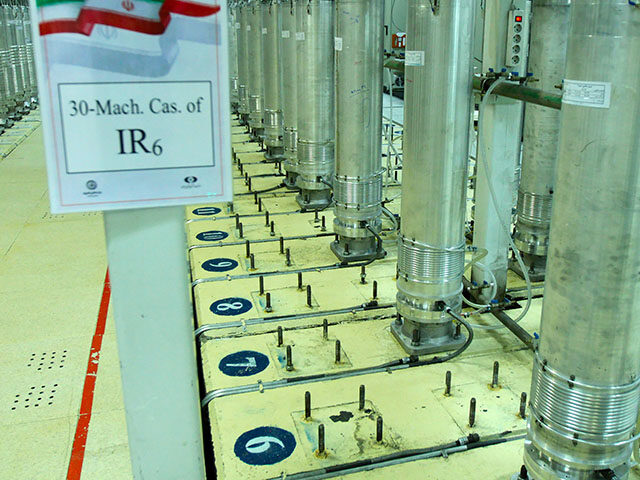The International Atomic Energy Agency (IAEA) reported on Thursday that Iran has defied calls from the international community by increasing its already prodigious stockpile of near-weapons-grade uranium, and by refusing to give top IAEA inspectors access to its nuclear sites.
According to the new IAEA report, Iran now has 164.7 kilograms of uranium enriched to 60 percent, which is far higher purity than any reasonable civilian pursuit demands, but lower than the 90 percent level required for a nuclear bomb.
Enhancing uranium from 60 percent to 90 percent can be done much more quickly than getting it to the 60 percent level. The IAEA has estimated Iran would be able to build several nuclear weapons with its current inventory of uranium, if it completed the enrichment process.
Iran’s stockpile is 22.6 kilograms larger than it was in May, when the IAEA produced its previous report. Even the smaller stockpile in May was still 30 times larger than Iran agreed to maintain in its 2015 nuclear deal with former President Barack Obama.
The IAEA saw signs that Iran could be planning to increase its uranium stocks even further. According to the report, at least eight new clusters of uranium centrifuges have been installed at Iran’s major known enrichment sites, although they are not yet operational.
As it did in May, the IAEA complained that Iran is still refusing to cooperate fully with nuclear inspectors. The agency noted that Iran is still refusing to give senior IAEA inspectors access to its nuclear sites, and still has not explained why traces of uranium were discovered at two unlisted sites in 2021.
“The Director-General expresses the hope that his initial exchange with President Pezeshkian will be followed by an early visit to Iran and the establishment of a fluid, constructive dialogue that swiftly leads to concrete results,” the IAEA quarterly report to member nations said.
The Director-General of the IAEA is Rafael Mariano Grossi. Grossi spent last week warning international leaders about the growing possibility of a “nuclear accident” at Russia’s power plant in Kursk, the province that was invaded by Ukrainian forces in early August.
Masoud Pezeshkian is the recently installed president of Iran, taking over from hardline cleric Ebrahim Raisi, who was killed in a helicopter crash in May. Pezeshkian ran with the support of the “moderate” Iranian politicians who negotiated the 2015 nuclear deal, and he has expressed interest in resuming “nuclear diplomacy,” with the unenthusiastic blessing of Supreme Leader Ayatollah Ali Khamenei.
On Thursday, Iranian Ambassador to the United Nations Ali Bahreini wrote on social media that Tehran supports a worldwide ban on nuclear weapons testing. August 29 was designated as the “International Day Against Nuclear Tests” by the United Nations in 2009.
“Nuclear testing is a threat to our planet and future generations. On the International Day against Nuclear Tests, let’s pledge to protect our world by advocating for a complete end to nuclear tests and total elimination of [nuclear weapons],” Bahreini wrote on social media.
“Each nuclear explosion is a step backward in the journey towards a world free of nuclear weapons. Today, more than ever, we need a global commitment to the complete elimination of nuclear weapons,” he said in another post written in Persian.

COMMENTS
Please let us know if you're having issues with commenting.